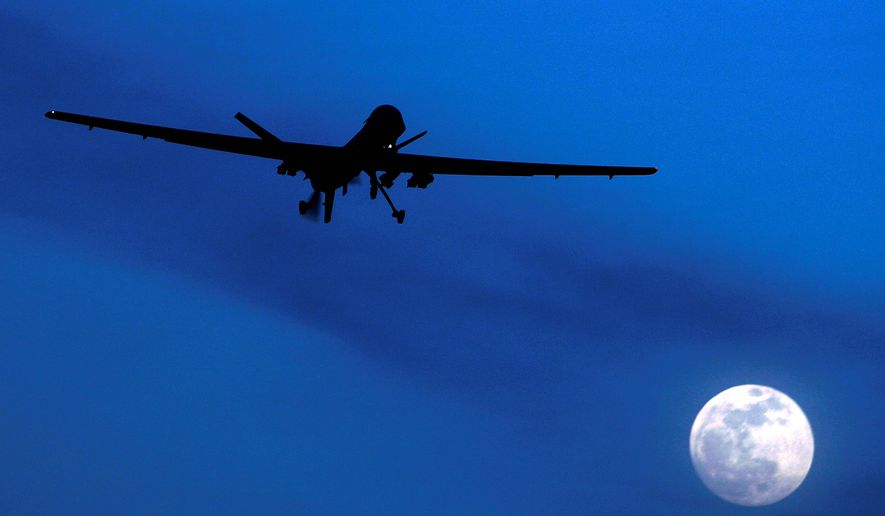Google artificial intelligence technology is reportedly being used by the Department of Defense to process and analyze aerial drone footage.
The collaboration, reported by the online tech newsite Gizmodo, noted that the revelation “outraged” some Google employees when they learned of the development last week in an internal mailing.
While full details remain unclear, the Silicon Valley-based search engineer pioneer was reported to be providing resources to the DOD for research to assist Project Maven, a Pentagon initiative to better understand video footage from drones or CCTV cameras watching military camps and bases. Current technology can recognize basic objects, including cars and people, but has difficulty understanding complex scenes.
The collaboration apparently began last April and Google has since confirmed it has been providing the DOD with access to its TensorFlow software to help military engineers develop object-recognition algorithms.
“We have long worked with government agencies to provide technology solutions,” a Google spokesperson said. “This specific project is a pilot with the Department of Defense, to provide open source TensorFlow APIs that can assist in object recognition on unclassified data. The technology flags images for human review, and is for non-offensive uses only.”
While TensorFlow is free Google software that has been widely used throughout the industry for numerous purposes for years — and some of the firm’s leading executives including Eric Schmidt and Milo Medin have served on the Pentagon’s Defense Innovation Board — Google employees were said to be wrestling with the ethical issues of providing the U.S. Military with artificial intelligence, especially for use assisting drones.
“Military use of machine learning naturally raises valid concerns,” Google said in a statement. “We’re actively discussing this important topic internally and with others as we continue to develop policies and safeguards around the development and use of our machine learning technologies.”
• Dan Boylan can be reached at dboylan@washingtontimes.com.




Please read our comment policy before commenting.